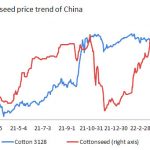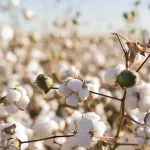
Cotton Australia’s new online jobs service has generated significant interest from job seekers with most applying from overseas and therefore not able to accept jobs immediately. Cotton Australia CEO Adam Kay said National Agriculture Day was a timely opportunity to update the performance of Cotton Jobs Australia, a platform to address the industry’s seasonal labour shortages, which were triggered by the COVID-19 pandemic.
“The response by our farmers has been good with a steady increase in jobs being advertised but we have found some interesting results from job-seekers. Around 80% of applicants do not hold Australian passports and therefore it is not automatically evident if they are eligible, or able to begin work immediately.” Mr Kay said the response highlights the importance of government efforts to increase the number of overseas workers able to work in Australian agriculture. “Recently the federal government amended the Migration Regulations to create the Australian Agriculture Worker Visa (Ag Visa). The aim was to provide a long-term, reliable workforce for our critical industries including cotton.

Adam Kay, Chief Executive Officer at Cotton Australia Ltd Greater Sydney
“As part of that initiative the requirement for British backpackers to work for 88 days in a regional area in order to obtain a visa extension is being phased out, which may result in large shortfalls in our seasonal workforce.” The AgVisa is targeting ASEAN countries to permit work on Australian farms for up to nine months each year however negotiations are still continuing with those countries. Traditionally the industry does not attract workers from those countries, with farm-skilled European backpackers filling most seasonal roles. “We appreciate the government’s efforts in the Pacific but there are still short to medium term needs that must be addressed to assist farmers.”
Mr Kay said Cotton Australia will continue to advocate for its growers in talks with governments aimed at bringing about enduring solutions to rural Australia’s workforce shortage. “This season we’re forecasting a crop in excess of 4.7 million bales and that equates to a million tonnes of fibre, enough to produce jeans, tshirts, socks and jocks for half a billion people.
“That crop means our workforce shortages will really start to bite unless we get applicants filling the jobs that are available on farm,” said Mr Kay.





